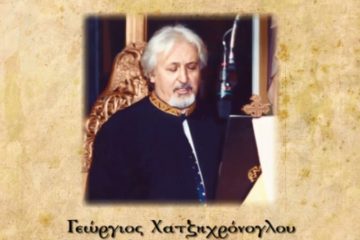The Akathistos Hymn occupies an important in the reverential period of Great Lent and is one of the most popular and well-known hymns, both in terms of its melody and poetry. Its inclusion in the Triodio can be explained by the fact that the content is linked to the joyful message of the Annunciation, which is why the Fridays before and after the feast both announce it and recollect it.
A special place in the service of the Akathistos belongs to the proem to the kontakion ‘To you victorious leader of triumphant hosts. It’s sung ‘slowly and melodically’, clearly in order to emphasize the historical depth of the faith of Christians that ‘the triumphant leader’ is our protectress and helper in every kind of trial and danger. One such instance was in 626, when she saved Constantinople from invaders.
From the point of view of the musical setting, it’s worth mentioning that, unlike other kontakia of the Byzantine period, that of the Akathistos Hymn is set to music as a whole by Byzantine and post-Byzantine melodists (14th- 18th c.).
The former Protopsaltis Archon Leonidas Asteris interprets ‘ To you triumphant leader’, as it was normally sung in the Patriarchal church, ‘slowly and melodically’.

Source: pemptousia.com




0 Comments